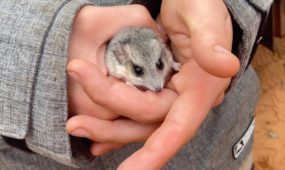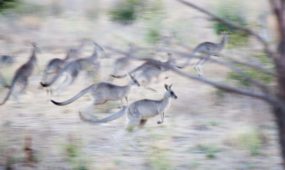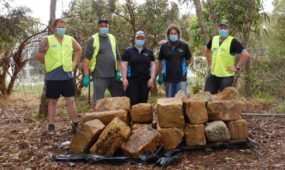Climate change to give rise to the vermin of the oceans
Environment
CLIMATE change will give rise to the vermin of the oceans and place additional pressure on predatory species, a study has found.

Sign up to receive notifications about new stories in this category.
Thank you for subscribing to story notifications.

University of Adelaide researchers from South Australia have demonstrated that the ocean acidification expected in the future will reduce fish diversity significantly, with small ‘weedy’ species dominating marine environments.
Published today in Current Biology, the researchers studied species interactions in natural marine environments at underwater volcanic vents in New Zealand, where concentrations of CO2 match those predicted for oceans at the end of the 21st Century. They were compared with adjacent marine environments with current CO2 levels.
Surveys and underwater experiments over three years showed that in high CO2 marine environments one or two species of the smaller, behaviourally dominant fish thrived while the less aggressive, and less common species disappeared.
Project leader Professor Ivan Nagelkerken from the University of Adelaide’s Environment Institute said the ocean acidification was also transforming ecosystems from kelp to low grassy turf making it more difficult to sustain intermediate predators, which had traditionally helped keep weedy species under control.
He said the results were not unlike what had been observed on land in urban areas of significant human disturbance.
“On land we would refer to weedy species like cockroaches, mice and ants,” he said.
“Underwater you see the same thing – a lot of species are very sensitive and attached to one specific type of habitat while other species are very adaptable in what they eat and how they use their habitats.”
“If we look at the total number of fish we actually see that these increase under ocean acidification but local biodiversity is lost.”
Scientists have been studying the impacts of climate change on the oceans for several decades but most previous experiments have studied individual species in the lab rather than entire ecosystems in an aquatic setting.
Prof Nagelkerken said although the study only looked at small fish at the lower level of the food web, there was good evidence to show weedy species coped better increased ocean acidification.
He said the next step would be to test the findings on some of the larger fish species humans depended on for protein.
“Will we see the same trends there? Will the most valuable economic species collapse as the numbers of less preferred species increase? That will be an important question to answer but it is also a very difficult one.”
However, Prof Nagelkerken said the findings combined with the overfishing of many predatory species would likely have a double impact on ocean biodiversity.
“If we take out the predatory fish that feed on these weedy species you get explosions and the only way to keep those down is by reducing the overfishing of those important predatory species and that’s a big issue,” he said.
“We hear so many stories about how we are emptying the oceans but now we are showing another effect – if you remove those predatory species there is even more danger from climate change.
“So there is an interaction there between overfishing and the impacts from climate change and that’s pretty new, it hasn’t been identified in other studies.”
South Australia’s capital Adelaide has three long-standing public universities, Flinders University, University of South Australia and the University of Adelaide, each of which are consistently rated highly in the international higher education rankings.




